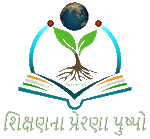STD-10 SOCIAL-SCIENCE CH-20 QUIZ (ENG-MED)
STD-10 SOCIAL-SCIENCE (ENG-MED)
Q 1. Discuss the negative impacts of communalism.
ANS: Communalism is harmful in various ways. It leads to social tension in the country. People having communal feelings do not look every citizen equally. Such people consider themselves superior to others. People consider their own friends belonging to different religion as enemies or rivals. This creates an atmosphere of difference and harted. Communal tension leads to communal quarrels and even riots.
Communalism is harmful for democracy, national integrity and development of nation. Having feeling of communalism is not only against the society but also against the spirit on which our constitution is framed.
Q 2. How can educational institutions, students and youth help in solving communalism?
ANS: Education plays an important role in eradicating communalism. Hence, our education curriculum contains positive things that students should learn and adopt in life. Moreover, prayers respecting humanity and all the religions are done at the schools which help students to maintain good and healthy feelings for all.
Such prayers and programmes on communal harmony should also be done at social functions and all other important functions. Youth must join hands and come forward to remove communalism. Attempts must be made at the social and educational level to develop secular feelings and scientific and logical attitude among youths.
Q 3. The scheduled castes remained backward for a longer time. Explain it.
ANS: The roots of the problem of backwardness of few communities lie in history. In ancient time, the social structure was divided into four castes, namely Brahmins, Kshatriyas, Vaishyas and Shudras. Every class could practice only that profession which the society decided. Today’s scheduled caste people fall into the class of Shudras. They were considered inferior and they were looked upon as low class people of the society.
People of this class had to live in the outskirts of the villages or only in some specific urban areas. These people were deprived of various social and religious rights. Due to all these reasons, people of these castes could not progress considerably. Hence, few communities or castes have remained backward in comparison to other in India.
Q 4. There are special provisions in the Constitution for the weaker section of the society. Give reason.
ANS: Many castes in India have remained weak since ages. As per Constitution of India, all citizens are equal and hence all should be treated equally and given equal fundamental rights. But, the problem is that the weaker sections of the society were exploited for a very long time. By keeping same rules and regulations for all will not help the weaker sections of the society to develop. As a result, the government made special provisions in the Constitution for such people. These provisions give relaxation to people of backward class in government jobs, admission in colleges, etc.



No comments
THANKS TO COMMENT